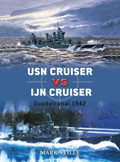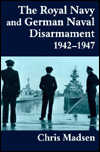My Life
Raeder, Erich
1980, Ayer, Salem NH
ISBN 0405130759
Hardcover, 430 pages, 16 pages of photos
| Type. | Autobiography |
| Pros. | Full-length life-story by important German figure |
| Cons. | Not revealing enough about German naval policy, relationship with Hitler, Nazis, Dönitz. Embarrassingly uncomfortable about knowledge of Holocaust, slave-workers, etc. Standard political biographical defence of own position and achievements vs experiences |
| Rating. |  |
 Raeder's 1960 My Life portrayed the German navies of both wars as apolitical. He failed to illustrate its, or his, culpability in enhancing German militarism, or bellicose nationalism. He was sorry, but not remorseful, for the plight of the nation and the navy. Unfortunately, his morality was fatally wounded by association with nationalism. He did not admit his part in the disasters. Raeder essayed the standard defence that the German navy was always the poor relation of the Prussian-German army. He failed to show that it nevertheless always heavily promoted itself, artificially and hastily, as a source of national pride and identity, and as a valuable servant of the state. Raeder merely stated that the ancient Hanseatic league (the 'original' source of German credibility as a sea-power) died long before the creation of the German state, and the German merchant service's influence over the Reichsmarine ebbed quickly under Admiral Tirpitz, after the ascension of the pro-seapower Kaiser Wilhelm II. These were why, Raeder theorised, everything went wrong.
Raeder's 1960 My Life portrayed the German navies of both wars as apolitical. He failed to illustrate its, or his, culpability in enhancing German militarism, or bellicose nationalism. He was sorry, but not remorseful, for the plight of the nation and the navy. Unfortunately, his morality was fatally wounded by association with nationalism. He did not admit his part in the disasters. Raeder essayed the standard defence that the German navy was always the poor relation of the Prussian-German army. He failed to show that it nevertheless always heavily promoted itself, artificially and hastily, as a source of national pride and identity, and as a valuable servant of the state. Raeder merely stated that the ancient Hanseatic league (the 'original' source of German credibility as a sea-power) died long before the creation of the German state, and the German merchant service's influence over the Reichsmarine ebbed quickly under Admiral Tirpitz, after the ascension of the pro-seapower Kaiser Wilhelm II. These were why, Raeder theorised, everything went wrong.
It must be stated that this book was ghostwritten by Adm (Ret) Erich Foerste, who also wrote the autobiography (!) of Dönitz, Ten Years & Twenty Days. This came to light during the research of Charles Thomas for his PhD thesis, later book The German Navy in the Nazi Era, (Allen & Unwin, Sydney, 1990). Despite this there is a considerable difference in style and mood: Raeder's is a noticeably softer, more deft work, though still quite stiff. This is significant not for the deception, for such ghost-authors are a normal, accepted part of military and political careers. It is significant because Raeder led those German ex-Naval servicemen who espoused the line after the war that the Kriegsmarine had been the least Nazi - the least criminal - of the services. He was already criticising the pro-Nazi ethos of Dönitz by August 1945, while emphasising the political neutrality of the Kriegsmarine during his own term. This line was swallowed whole by postwar Western historians, who lauded Raeder for being the "good" German Admiral. Only after Raeder's death would Dönitz be (partially) rehabilitated. After a decade in prison with his successor, Raeder could see that a controversial split between the two most senior German admirals of the war years could do none of them any good. As a result, the divergence between them was concealed, and their biographies could concentrate purely on operational matters. To ensure this they carefully vetted their biographies composed by a single, concealed, author. This was also in tune with the standard line of German naval memoirs that politics would not be mentioned, no-one was a Nazi, and everyone obeyed orders and no more.
There has been no other biography of Raeder, save a few brief accounts in compilation works about German leaders. Indeed the most valuable account of his career and its impact might well be Thomas' own work, at least until a proper critical biography is written; as no other works (by 1990) covered the Kriegsmarine after 1928. Meanwhile, the best of the compilations is Bird's in Men of War: Great Naval Leaders of WW-II (Weidenfield & Nicholson, London, 1992). This at least concentrates on naval men rather than generals with the de rigueur addition of Raeder and Dönitz. Dönitz provided a very stiff, entirely operational account of his career, omitting even personal information about the loss of his sons, or any of the powerful relationships with his senior staffers or the ace U-boat commanders he tutored and lauded. As a result his book was very cold and furthermore very unrevealing of the kind of information everyone wanted: i.e., how his leadership brought the Allies close to disaster with a staff of a few officers and some communications ratings! Raeder, on the other hand, gave a solid, staid account of his life, from childhood, cadetship in adolescence, and his steady progress as a serving officer before, during, and after the Great War. His account is nevertheless self-serving, inaccurate, and misleading. After his release from Spandau, he needed to distance himself from the Nazi government, the Holocaust, and any notion of aggression and delusion. He also needed to show he was a loyal servant of the nation (if not quite the Reich) and of the German people, via the state, as Dönitz did. He could not be seen to be too ungrateful and individual. He nevertheless trotted out the basic "Nur-Soldat" position of all senior and junior German military figures: "I was just a soldier. I just followed orders".
In Raeder's case: I generated policy, and administered, based on directives from my political leaders, irrespective of whom they were or their political creed. Here Raeder was inaccurate and misleading. He failed to describe the political subterfuge he and others used to provide personnel, funds, and facilities to the navy, even before the ascension of the Nazis. He also failed to describe how the governments of the 1920s and early 1930s were regarded as politically suspect, incompetent, or adversarial, to the views and needs of the navy and the armed services in general. He described at length what he did, but not always why, or exactly how. He also described at length the political instability before the Nazi government, but not the division and infighting within the dictatorship. He only admitted to very healthy, and then unproductive rivalries, between the services and especially their heads, from the middle-1930s, as rearmament both illicit and otherwise got underway. The essential incompetence and malignant multi-headedness of Nazism were not mentioned.
Raeder demonstrated by omission that the Reichsmarine and the German armed forces generally learned nothing from the experience of the Great War. A strong armed force was not needed between the wars, given the emotional and social climate. The only use for such forces was conquest, in both the versions Hitler employed: political and implicit, used initially; and military and overt, once appeasement had run its sorry course. Furthermore, Raeder was quite as misled as other senior naval leaders between the wars as to the real nature of seapower. While he considered U-boats and aircraft important, he nevertheless committed the Kriegsmarine and Germany to secret reconstruction while democratic government dithered in the late 1920s. He committed the navy to ocean commerce-raiding by large conventional warships instead of small craft, especially rapidly-constructed U-boats. Even worse, Raeder committed the navy to attempting balanced forces, with a set of more-or-less useless capital and other warships, for oceanic and coastal purposes: battleships, cruisers, destroyers. This was in stark contrast to Germany's financial, geographic and social position. Germany was historically neither a naval power nor a nation with an extensive coastline for bases and ports. Without these no naval strategy can survive blockading. Germany could not afford such naval forces, even if they were ever to be used, while the Wehrmacht and the Luftwaffe got the lion's share of funding, governmental support, and publicity. It had a large industrial and shipbuilding capability and a necessarily large, modern and efficient shipping service. It lacked the coastline and easy access to oceans, once blockaded, to make the most of these advantages. That was Germany's tragedy, aside from the historical position of the country and the leaders it chose.
Raeder exacerbated these. He enhanced his own political and naval position with Hitler by simply allowing his leader his head. He allowed the navy to develop to an 'offensive' composition, failed to oppose Hitler in a respectful, subordinate way (as Dönitz later managed), and sentenced his navy to the opportunistic, reactive position it occupied when war came. Above all Raeder allowed himself to be taken in by Hitler's false promises. His navy would not have to be ready until 1944-48. War was too soon. He could have worked to minimise the exposure of the navy to political interference and Nazi expansion. He could have allowed it to remain a small force, unable to affect British naval power the way as it did. Its successes and defects forced the fatal expansion of the U-Waffe. For him pride and effectiveness were immutably linked to size and scale, not efficiency or moral and financial responsibility. Raeder was a true servant of the state, not of the navy nor its personnel.
He defended himself merely by saying he had no knowledge of the use of slave-workers, or the Holocaust. Like all good German officers, he even attempted and managed to save a few Jews he knew from deportation. Letters were appended as evidence, as they were no doubt at his trial. This section of the book thus works in much the same way. He is engaged in his defence. If, however, he had no idea of their possible fates, from what was he saving these Jews? A rough, but character-building stay in a concentration camp? Merely a loss of assets?! He had to be aware of what was going on in Germany, even if he was not in power long enough to know in detail of the gas chambers. If he was a victim of 'Victor's Justice' at Nuremberg, in that he was convicted of "waging Offensive war", etc, he was at least as guilty of failing to oppose his masters at the proper times, and of deluding himself when in a position of power and authority. It is true also that his opposition might have made little difference to the war or the war effort, but it might have sent a signal, inside and outside the service and the nation, that all was not well. He was clearly too old a soldier, and too long immersed in nationalism, to do that. By 1960 he demonstrated he was unfortunately too old even to admit it. There is throughout this book a sense that the reader is missing the grit of the story: the core of Raeder's experiences, rather than just his accomplishments. That may be a failing of all political biography, but it is still a tragedy with a figure as significant and as fallen as Raeder. Other than Dönitz, perhaps no other Second World War leader is in more need of a full, detailed and critical (while not necessarily magisterial) account.
The reviewer welcomes your comments on this review.
Review written by Ian Campbell, Launceston, Tasmania.
Published on 19 May 2001.
Return to our main review page.



